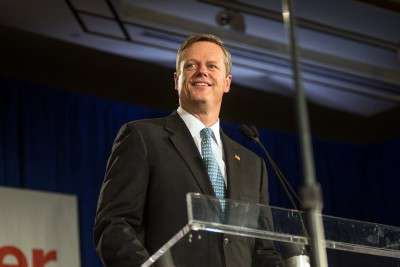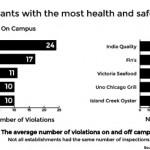
Following Tuesday’s midterm elections, the members of the Boston University community remain hopeful, yet skeptical, about how new leadership will affect discussions about policy for higher education.
In a tight race for governor, Republican candidate, now Governor-elect, Charlie Baker came out over Democratic candidate Martha Coakley with 48.46 percent of the vote. On the federal level, Republicans gained a majority in the U.S. Senate.
BU Vice President of Federal Relations Jennifer Grodsky said new leaders in Congress education committees will allow the federal government to address several issues facing college students.
“The one that most people are talking about is the new chair of the Senate education committee. His name is Lamar Alexander. He’s from Tennessee,” she said. “One of the things he’s really been focusing on is can you can ease regulations on colleges and universities to make it easier for them to take care of students? Or can you change some of the federal regulations to make things easier for students?”
U.S. President Barack Obama addressed Senate members Wednesday at a news conference addressing the midterm election results. He stressed cooperation, productivity and bipartisan efforts to address issues such as higher education.
“We’ve got some common ideas to help more young people afford college and graduate without crippling debt, so that they have the freedom to fill the good jobs of tomorrow and buy their first homes and start a family,” he said.
As an institution of higher education, BU is nonpartisan and does not take a political stance, Grodsky said.
“We’ll do well no matter what party is in leadership because we just focus on providing legislators with information,” she said. “All legislators want to help students. They just have different approaches with how they do it, so it’s our job to educate them on what that might mean for our students.”
In his acceptance speech early Wednesday morning, Baker thanked voters for choosing him at the polls and supporting his plans for Massachusetts, including for higher education.
“We always knew our vision to make this state great, improve our economy, close that achievement gap in education and bring the kind of fiscal discipline and balance to Beacon Hill and bipartisanship that so many people responded to over the course of this campaign was the right way to go,” he said.
Philip Tate, a senior lecturer in the School of Education, said he hopes Baker will consider ways to address problems students face at state public universities.
“He [Charlie Baker] has Democrats in both houses of his legislature, so he’ll have to do what past Republican governors have done, which is work the Democratic majority if they plan to get anything done at all,” Tate said. “That’s [state universities] the only arena that the state government has any power over. They [the administration] could think of better ways to connect community colleges to four-year colleges or to fund some experiential programs in the state colleges to help kids get through in three years to find some way to offer some classes in the summer.”
Several students said they do not expect issues surrounding higher education to be addressed any differently or more effectively with the inauguration of a new governor.
Gabrielle Lawson, a freshman in the College of General Studies, said she does not think there will be much of a change in the way elected officials deal with higher education.
“They need to make loans more accessible and create some sort of funding that doesn’t have to be paid back,” she said. “Coming to college is expensive enough, but it is on the universities to address tuition costs.”
Laura Osga, a third-year graduate student in the School of Social Work and School of Theology, said the Republican Party’s priorities are not necessarily in line with what will help students the most.
“The Republican Party doesn’t have much of a underprivileged population at the forefront of their concern,” she said. “There needs to be more accessibility for underprivileged folks to go to college.”
Vice Chairman and archives keeper for The Daily Free Press Board of Directors. Former news editor. I like data, politics, and higher education, but will write about anything.




